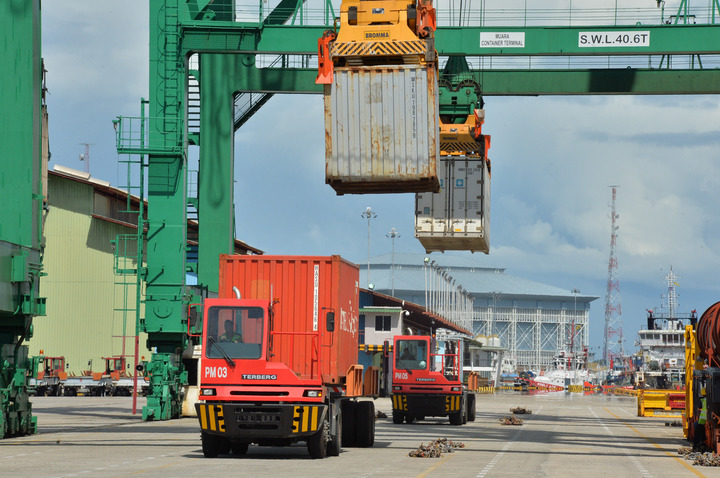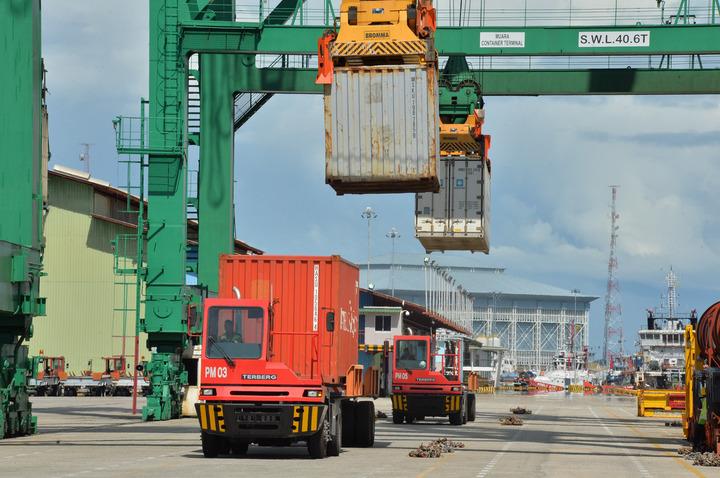
Photo taken on Jan. 1, 2022 shows containers being unloaded at the Muara Port, Brunei's largest deep-water port, in Bandar Seri Begawan, capital of Brunei. (Photo by Jeffrey Wong/Xinhua)
BEIJING, Jan. 7 (Xinhua) – As of January 5, the China Council for the Promotion of International Trade (CCPIT), China's foreign trade and investment promotion institution has issued 275 Regional Comprehensive Economic Partnership (RCEP) certificates of origin for 135 companies across the country since the RCEP agreement takes effect, according to the RCEP Business Leaders Forum held in Nanning of south China's Guangxi Zhuang Autonomous Region Wednesday.
It is noted that the RCEP certificate of origin issued by CCPIT mainly involves textiles, chemical products, medical products, and food, while the export destination countries including Japan, Australia and other effective member states of RCEP, involving an expected tariff reductions of 220,000 U.S. dollars for enterprises.
The Business Leaders Forum attracted government officials and trade experts from at home and abroad to share their views and insights of strengthening industrial chain and supply chain integration and promoting investment liberalization and facilitation.
Meanwhile, the forum also launched e-books on RCEP and opened 14 RCEP overseas enterprise service centers of Guangxi Chamber of International Commerce, which aims to further promote the development of international trade cooperation under the RCEP.
Gao Yan, CPPIT Chairperson, said that the CPPIT will take the effective implementation of RECP as an opportunity to provide enterprises with better foreign trade investment services and make greater contributions to the recovery and growth of the regional and global economies.
The RCEP agreement, which took effect on Jan. 1, 2022, consists of 15 Asia-Pacific countries, including ten ASEAN countries, China, Japan, Republic of Korea, Australia and New Zealand. As the world's largest free trade area in terms of trade volume and population so far, the RCEP agreement is expected to provide a strong boost to international trade and investment and enhance the level of economic integration in the relevant region. (Edited by Jiang Feifan with Xinhua Silk Road, 346129473@qq.com)




 A single purchase
A single purchase









